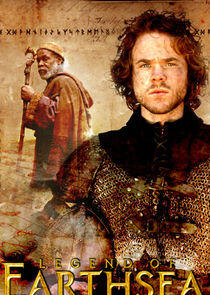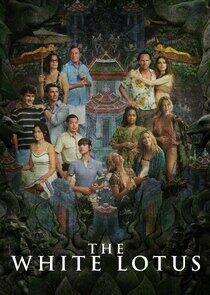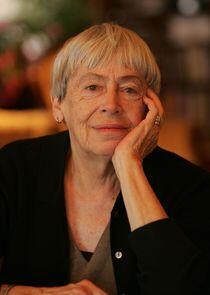
Ursula K. Le Guin
Le Guin was born in Berkeley, California, to author Theodora Kroeber and anthropologist Alfred Louis Kroeber. Having earned a master's degree in French, Le Guin began doctoral studies but abandoned these after her marriage in 1953 to historian Charles Le Guin. She began writing full-time in the late 1950s and achieved major critical and commercial success with A Wizard of Earthsea (1968) and The Left Hand of Darkness (1969), which have been described by Harold Bloom as her masterpieces. For the latter volume, Le Guin won both the Hugo and Nebula awards for best novel, becoming the first woman to do so. Several more works set in Earthsea or the Hainish universe followed; others included books set in the fictional country of Orsinia, several works for children, and many anthologies.
Cultural anthropology, Taoism, feminism, and the writings of Carl Jung all had a strong influence on Le Guin's work. Many of her stories used anthropologists or cultural observers as protagonists, and Taoist ideas about balance and equilibrium have been identified in several writings. Le Guin often subverted typical speculative fiction tropes, such as through her use of dark-skinned protagonists in Earthsea, and also used unusual stylistic or structural devices in books such as the experimental work Always Coming Home (1985). Social and political themes, including race, gender, sexuality, and coming of age were prominent in her writing. She explored alternative political structures in many stories, such as in the philosophical short story "The Ones Who Walk Away from Omelas" (1973) and the anarchist utopian novel The Dispossessed (1974).
Le Guin's writing was enormously influential in the field of speculative fiction, and has been the subject of intense critical attention. She received numerous accolades, including eight Hugos, six Nebulas, and twenty-five Locus Awards, and in 2003 became the second woman honored as a Grand Master of the Science Fiction and Fantasy Writers of America. The U.S. Library of Congress named her a Living Legend in 2000, and in 2014, she won the National Book Foundation Medal for Distinguished Contribution to American Letters. Le Guin influenced many other authors, including Booker Prize winner Salman Rushdie, David Mitchell, Neil Gaiman, and Iain Banks. After her death in 2018, critic John Clute wrote that Le Guin had "presided over American science fiction for nearly half a century", while author Michael Chabon referred to her as the "greatest American writer of her generation".
Biography from the Wikipedia article Ursula K. Le Guin. Licensed under CC-BY-SA. Full list of contributors on Wikipedia.
Part of Crew
Recently Updated Shows
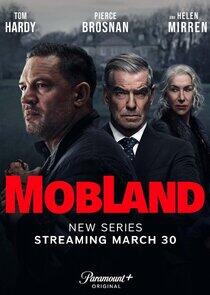
MobLand
With the most powerful clients in Europe, MobLand will see family fortunes and reputations at risk, odd alliances unfold, and betrayal around every corner; and while the family might be London's most elite fixers today, the nature of their business means there is no guarantee what's in store tomorrow.
MobLand follows two generations of gangsters, the businesses they run, the complex relationships they weave and the man they call upon to fix their problem.
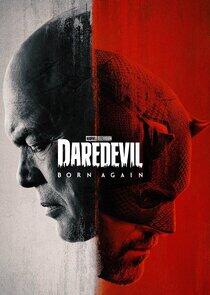
Daredevil: Born Again
Matt Murdock finds himself on a collision course with Wilson Fisk when their past identities begin to emerge.
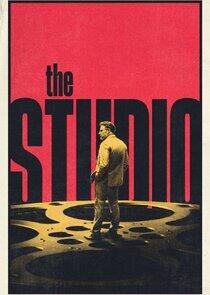
The Studio
As movies struggle to stay alive and relevant, Matt and his core team of infighting executives battle their own insecurities as they wrangle narcissistic artists and craven corporate overlords in the ever-elusive pursuit of making great films. With their power suits masking their never-ending sense of panic, every party, set visit, casting decision, marketing meeting, and award show presents them with an opportunity for glittering success or career-ending catastrophe. As someone who eats, sleeps, and breathes movies, it's the job Matt's been pursuing his whole life, and it may very well destroy him.
